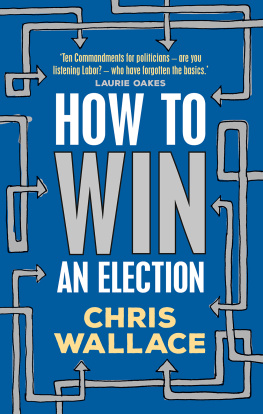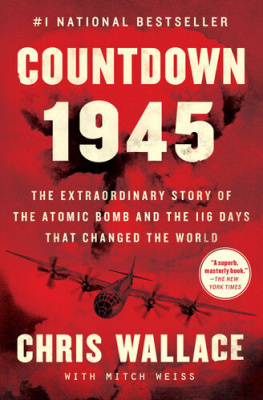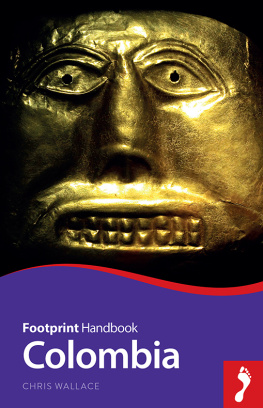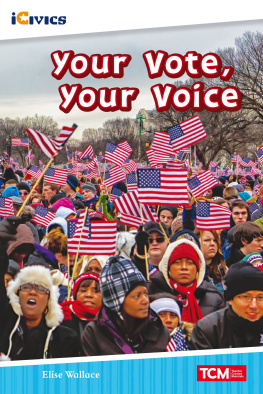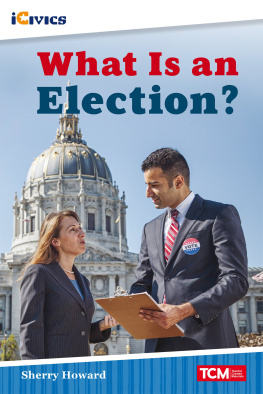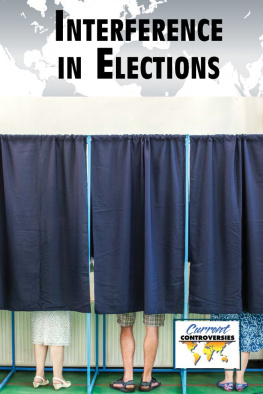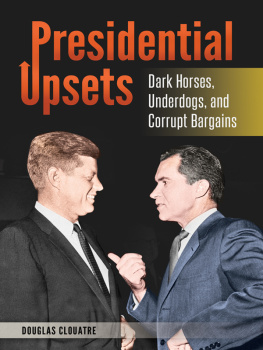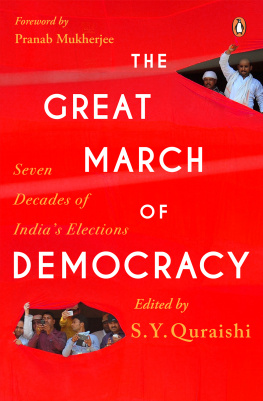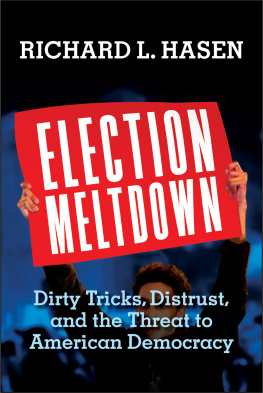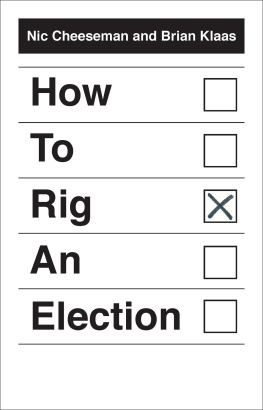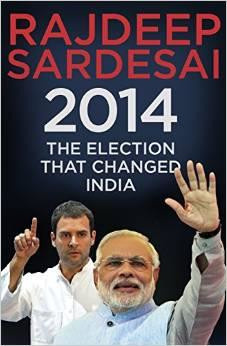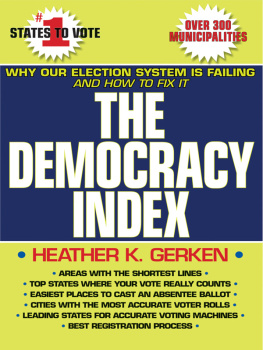Table of Contents
Page List
Guide

For Christie its up to your generation now.
A NewSouth book
Published by
NewSouth Publishing
University of New South Wales Press Ltd
University of New South Wales
Sydney NSW 2052
AUSTRALIA
newsouthpublishing.com
Chris Wallace 2020
First published 2020
This book is copyright. Apart from any fair dealing for the purpose of private study, research, criticism or review, as permitted under the Copyright Act, no part of this book may be reproduced by any process without written permission. Inquiries should be addressed to the publisher.
 | A catalogue record for this
book is available from the
National Library of Australia |
ISBN9781742236872 (paperback)
9781742244792 (ebook)
9781742249292 (ePDF)
Internal design Josephine Pajor-Markus
Cover design Luke Causby, Blue Cork
All reasonable efforts were taken to obtain permission to use copyright material reproduced in this book, but in some cases copyright could not be traced. The author welcomes information in this regard.


CONTENTS

PROLOGUE
I have always believed in miracles, Scott Morrison declared in his victory speech on election day 2019. Was the Morrison Governments surprise win over the Bill Shortenled Labor opposition a miracle? Or was it an unnecessary loss by Labor, which after its narrow defeat in 2016 looked set for certain victory? What went wrong?
After elections people, even political professionals, mostly put the result down to one main thing. Our personal experiences, incomplete knowledge, self-interest, and media reports drive us to make snap, instinctive pronouncements.
Sometimes those singular judgements might be correct: one factor may be overwhelmingly important in the result. But many elections in Australia are so close that if even a few aspects of performance between and during them were better, they could have changed the outcome.
Two election surprises tell the story: the Morrison Governments 2019 federal election win and the Keating Governments victory in 1993. Two shock results in a quarter of a century might not seem many, but Australia has only had ten federal elections in that period, so thats an upset every five elections over those 25 years. It takes historical perspective to bring their lessons to the fore.
Table 1: Post-election Australian government majorities 19692019
| YEAR | GOVERNMENT | NUMBER OF SEATS MAJORITY |
|---|
| 1969 | Gorton Government | 7 seats |
| 1972 | Whitlam Government | 9 seats |
| 1974 | Whitlam Government | 5 seats |
| 1975 | Fraser Government | 55 seats |
| 1977 | Fraser Government | 48 seats |
| 1980 | Fraser Government | 23 seats |
| 1983 | Hawke Government | 25 seats |
| 1984 | Hawke Government | 16 seats |
| 1987 | Hawke Government | 24 seats |
| 1990 | Hawke Government | 8 seats |
| 1993 | Keating Government | 13 seats |
| 1996 | Howard Government | 40 seats |
| 1998 | Howard Government | 12 seats |
| 2001 | Howard Government | 14 seats |
| 2004 | Howard Government | 24 seats |
| 2007 | Rudd Government | 16 seats |
| 2010 | Gillard Government | (6 seats) |
| 2013 | Abbott Government | 29 seats |
| 2016 | Turnbull Government | 1 seat |
| 2019 | Morrison Government | 2 seats |
The House of Representatives was expanded from 125 to 148 seats.
The House of Representatives was expanded from 148 to 150 seats.
A minority government by six seats, supported informally in office by independent MPs.
The House of Representatives was expanded from 150 to 151 seats.
Elections may still be very close without falling into the shock basket. This table shows the immediate post-election parliamentary majority of the Australian government over the past 50 years, during which there were 20 elections.
In seven of the 20 elections, the government held office with a single-digit majority of seats or was a minority government. That is, in one-third of elections held over the last half-century, the difference between winning or losing came down to just a handful of seats. One-third is a lot, certainly enough to back the claim that elections in Australia are often close. No one in politics leader, MP, party official, staffer, candidate, aspirant, rank-and-file party member, activist, journalist, commentator, voter should ever forget it.
This book is based on the idea that while antipodean electoral systems are the best in the world, well-functioning democracies should not produce as many surprise election results as Australia has over the past quarter-century. Too often political parties do not optimise all the elements of effective politics between, and during, campaigns. To the losers, surprise election losses are unnecessary election losses, producing a visceral anguish that glowers through to the next election and beyond.
The purpose of How to Win an Election is to make unnecessary election losses less common by showing how to avoid them. As mentioned above, better performance in even one or two of the areas canvassed in this book could lead to a different outcome, so full attention should be paid to each of them, all the time, every time, without fail in real time when it counts.
This sounds obvious. Doesnt that happen anyway? Isnt politics full of professionals who know that? If this were so there would be fewer surprise election results and 2019 would have seen the election of the Shorten Labor Government.
I wrote most of this book in the summer of 2020 as bushfires raged up and down Australias east coast. Many people died. Thick smoke blowing in from fires to the east, west and south forced me to decamp temporarily from Australias beautiful bush capital, Canberra, where residents in the outermost suburbs were on alert as fire encroached from the blazing Namadgi National Park. Wildlife and flora were decimated on an unprecedented, almost unimaginable scale. Dwellings were incinerated. While bushfires engulfed south-eastern Australia with an intensity and longevity unseen and unheard of in our history, the Morrison Government dog-whistled climate denial and gaslit the nation about its energy and environment policies. Citizens were traumatised by the Great Conflagrations ongoing human and environmental catastrophe, and the governments callous disregard of it.
As the book went into production, Canberra was hit by an epochal hailstorm. Seventy buildings at the Australian National University where I worked as an historian were seriously damaged. Then came the coronavirus pandemic. Australia shut its borders to the world and several states shut their borders to each other. The economic slowdown already underway before the pandemic cascaded into a deep recession: unemployment rose sharply and entire industries were on their knees. Poorly designed policy interventions to keep the economy alive helped some people and not others, helped some sectors and not others, and the better initiatives like free childcare were hastily withdrawn while still crucially needed. As the publishing process drew to a close, with Australia still in lockdown, I began a new job at the University of Canberra from home, later visiting its largely studentless, staffless campus as the coronavirus lockdown slightly eased. The bushfires, hailstorm and pandemic were not a series of random, unfortunate events. They are facets of the pervasive global phenomenon of bigger and more frequent catastrophes than ever before as Earths interacting physical, chemical and biological systems reel under the pressure of human impacts in what scientists now call the Anthropocene.

